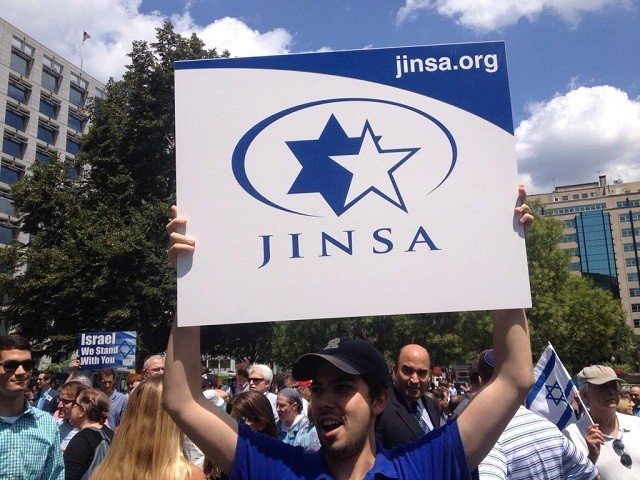JCRC meets with leader of Syrian political party Farid Ghadry, president of the Reform Party of Syria. Additionally, Ghadry met with JINSA.
Ghadry was born in Aleppo, Syria in 1954. In 1964, the family immigrated to Lebanon because of political turmoil and settled in Beirut. In 1975, the Ghadry family immigrated to the United States because of the Lebanese civil war and settled in the suburbs of Washington, DC.
Ghadry graduated from the American University in 1979 with a degree in finance and marketing. He worked at a Fortune 500 defense contractor for two years before starting International TechGroup, Inc. in 1983. Ghadry sold his business in 1989 and has been involved in many entrepreneurial operations.
In October of 2001, Ghadry, along with several Syrians, started the Reform Party of Syria. A constitution was written and a constructive program has been put in place to bring regime change to Syria. Today, the party is enjoying the support of many organizations in the United States including think tanks such as the Washington Institute for Near East Policy.
Ghadry is hoping to return to Syria and rebuild the country on the basis of economic and political reforms, which he believes will help foster democracy, prosperity, freedom of expression, human rights and lasting peace with all of the countries neighboring Syria.
Ghadry started his presentation by apologizing to the audience for the terrorism of Hamas, Hezbollah, Al Qaeda and others. He also apologized for the Syrian government’s support of terrorist groups.
Arab masses are today engaged in vilification of the West, Ghadry continued. This explains the cruel hanging of American soldiers’ bodies by a crowd in Fallujah. Countries such as Syria, Iran and Saudi Arabia incite their people to kill also by sending anti-Western messages. These governments control the masses. Many Syrians cannot afford to eat but talk about the Palestinian cause as if this were the most important issue for them, he said.
Ghadry stressed that the answer to terror is democracy. Syria helped create Hezbollah. The Reform Party of Syria calls for a total overthrow of the Arab regimes. Democracy is the key to lasting peace between East and West and between Arabs and Israelis. “Peace cannot be cold like the current situation between Egypt and Israel,” Ghadry said. “The current situation is no more than the cessation of hostilities. There must be an exchange of tourism, goods and commerce.” Ghadry also added that he supports the idea of a Holocaust museum in Damascus.
Ghadry claims that the American government, the European Parliament, Kurdish parties and children’s rights organizations support his organization. The Syrian Reform Party distributes leaflets in Syria through a publishing house located in Bulgaria. They support Radio Free Syria, which operates from Greece. “We are the last hope for change in the Arab world,” Ghadry said. He added that he is in contact with Libyan democracy and human rights groups and other Libyan dissidents.
There are about 150,000 Syrians in the United States and most of them support the idea of democracy in Syria, he said.
Ghadry says Syria has no business occupying Lebanon. On the Golan Heights, he stated that “when we change the educational system and we understand that Israel is a reality, we believe people will also understand that the Golan Heights are not that important to us.” The first priority is to establish “mutual trust between Israelis and Syrians,” he said. The educational system in Syria promotes hatred of Jews, Turks and others, according to Ghadry, and “it will take at least a whole generation to undo this.”
Islam and democracy are not contradictory, Ghadry said. He does not support foreign intervention to achieve democracy in Syria.
Regarding Iraq, Ghadry claims that the Shiite leader Ayatollah Ali Sistani can play a positive role because he does not believe that religion and politics belong together. Other leaders, like Moktada Al Sadr, are more dangerous. Ghadry believes that Iraq sent weapons of mass destruction to Syria, which he is trying to help disclose to the public.



COMMENTS